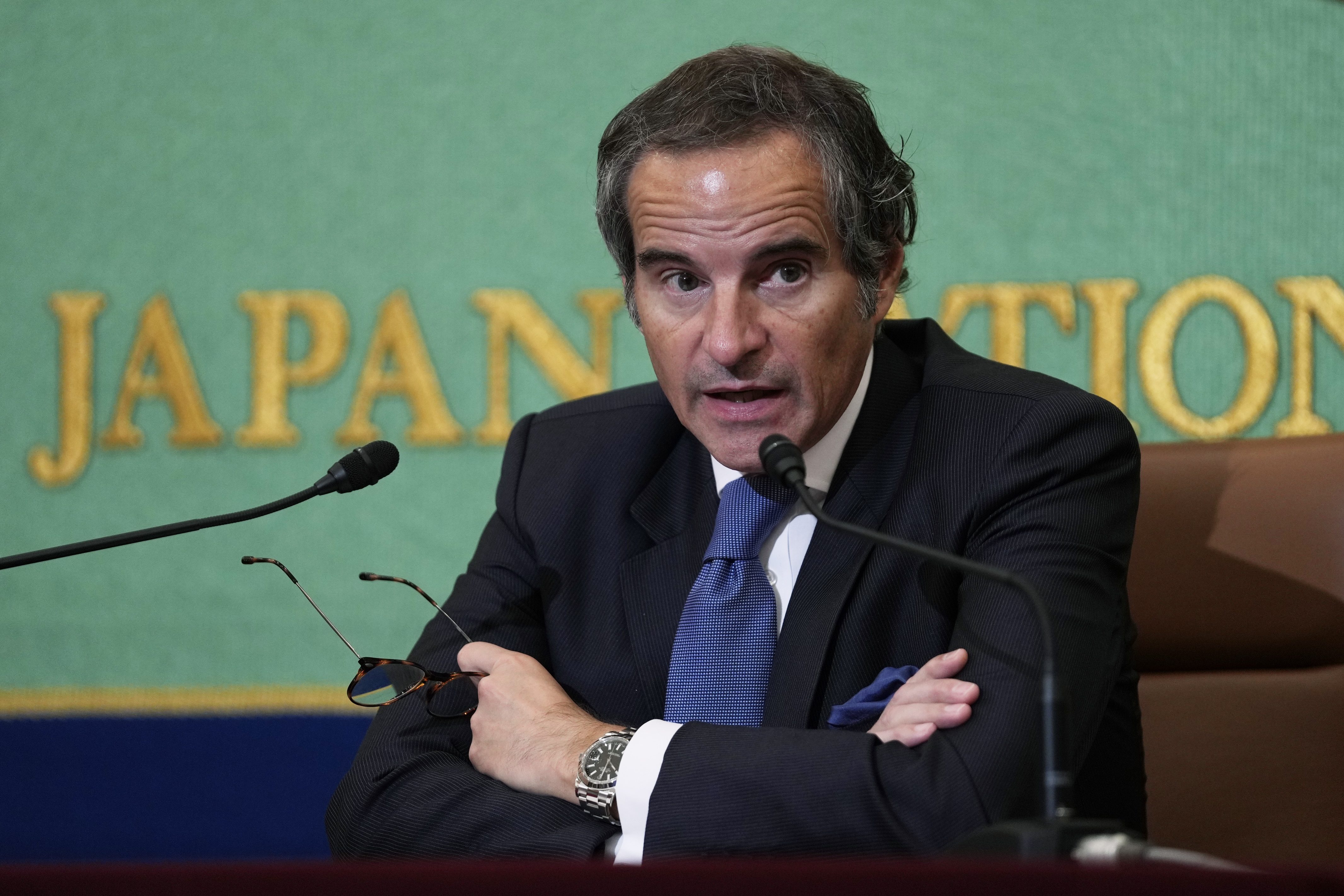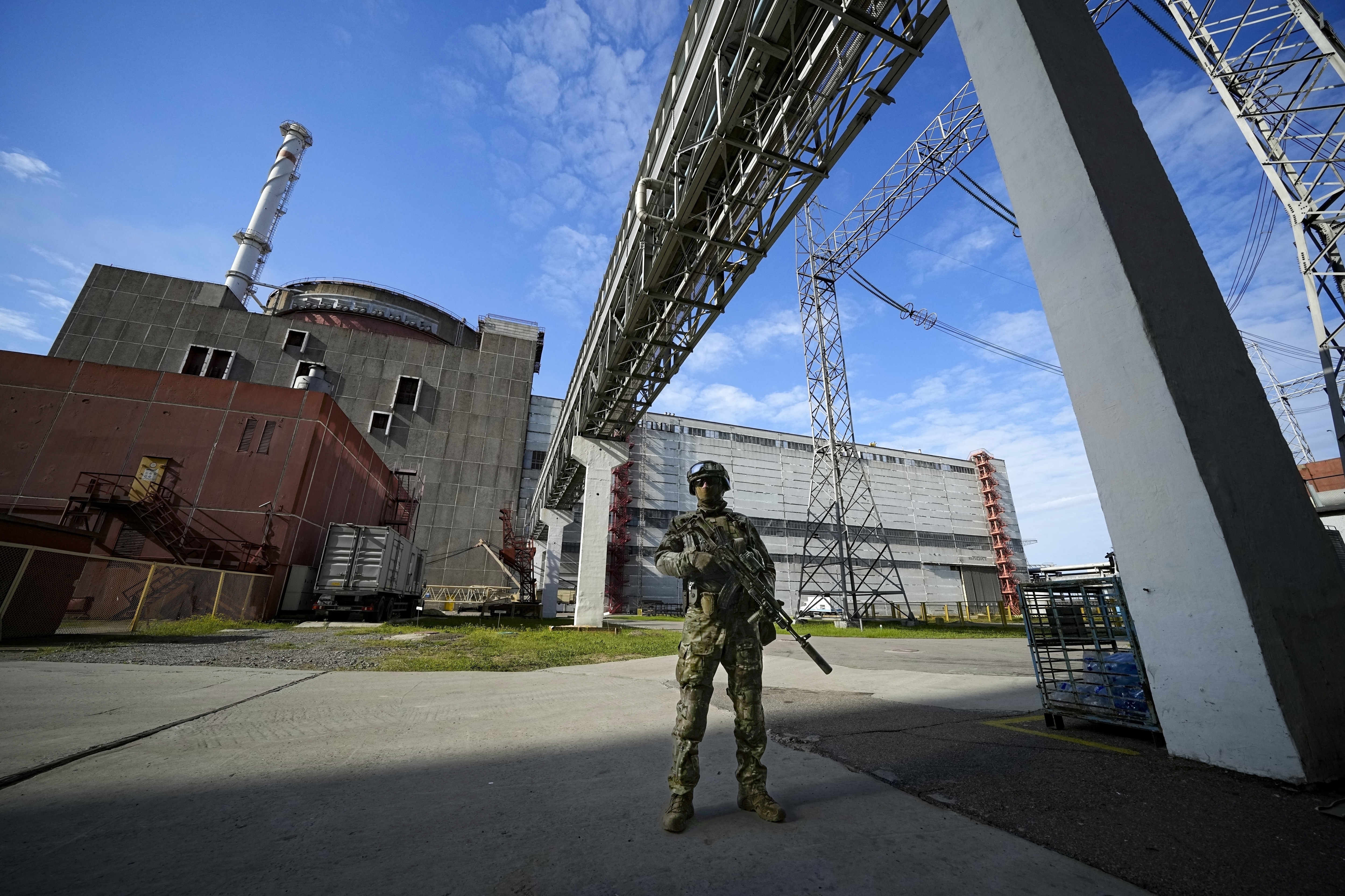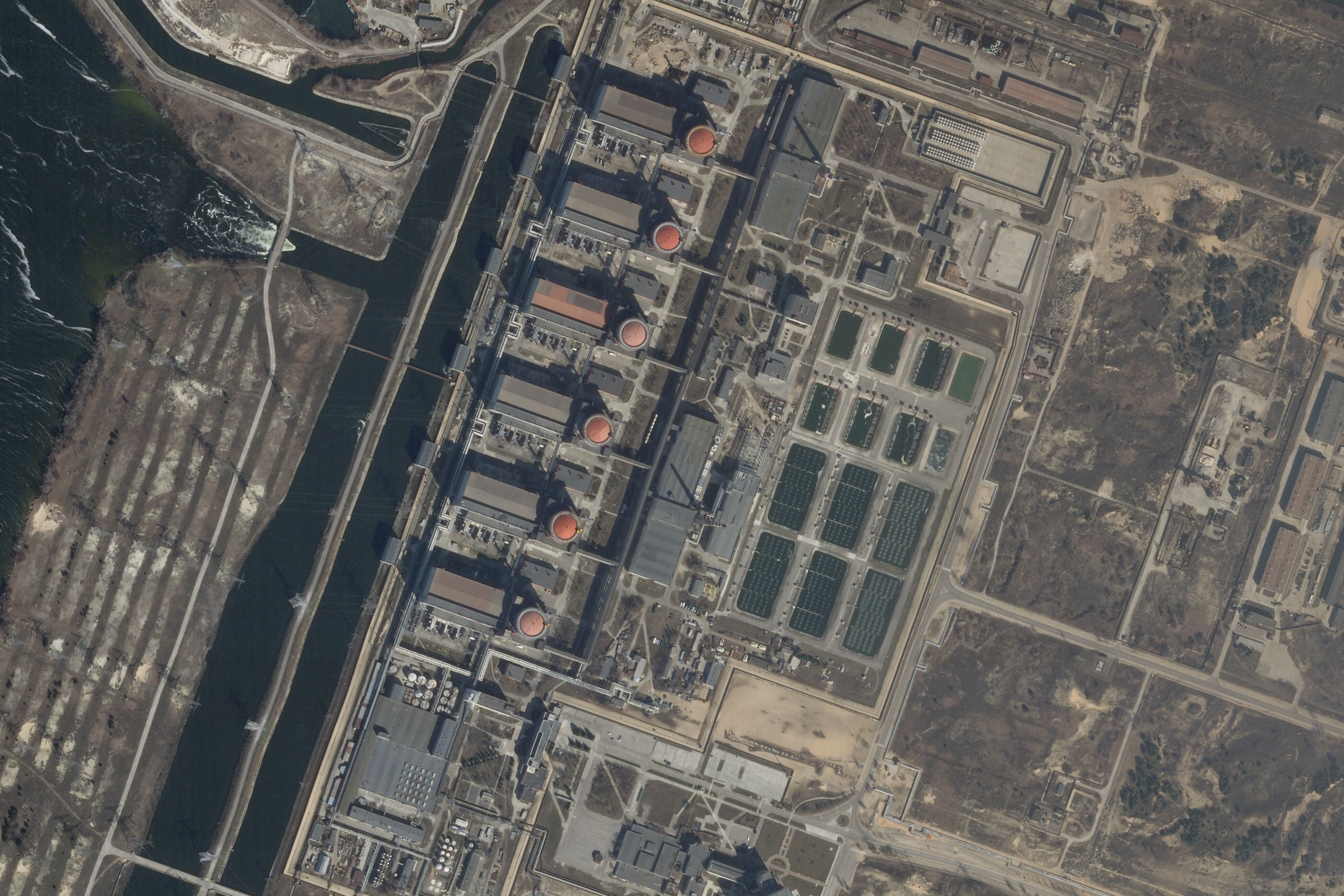The world's nuclear watchdog has called for an immediate cessation of hostilities near Zaporizhzhia nuclear power plant in southern Ukraine after it was struck by shelling, triggering the shutdown of one of the reactors and signalling the "real risk of a nuclear disaster".
The director general of the International Atomic Energy Agency (IAEA), Rafael Mariano Grossi, said he was alarmed by the reports of damage and has demanded that an IAEA team of experts urgently be allowed to visit the plant, to assess and safeguard the site.
"I'm extremely concerned by the shelling yesterday at Europe's largest nuclear power plant, which underlines the very real risk of a nuclear disaster that could threaten public health and the environment in Ukraine and beyond," Grossi said in a statement at the weekend.
READ MORE: Adult entertainer in bullet-proof vest sparks Perth street shutdown
"Military action jeopardising the safety and security of the Zaporizhzya nuclear power plant is completely unacceptable and must be avoided at all costs," he added.
Kyiv has accused Russian forces of storing heavy weaponry in and launching attacks from the plant, which they took over in early March and still occupy. Moscow, meanwhile, has claimed Ukrainian troops are targeting the complex.
Shelling on Friday damaged a power line and forced one of the plant's reactors to stop operating, according to Ukraine's state-run nuclear power operator, Energoatom, which later said there was no damage to the reactors themselves and the radiation situation was normal.
Attacks on the plant continued overnight on Saturday, according to Energoatom, striking various parts of the complex and injuring one Ukrainian employee. It claimed that Russian forces and employees of Russian state nuclear energy company Rosatom, who have been on site since they seized the plant, took shelter in bunkers before the barrage began.
The rockets hit the site of the plant's dry storage facility, where 174 containers with spent nuclear fuel are kept, and damaged three radiation monitoring detectors, making timely detection and response to leaking radioactive substances "currently impossible", Energoatom warned.
"This time a nuclear catastrophe was miraculously avoided, but miracles cannot last forever," it said.
While the security situation is stable and there is no immediate threat to nuclear safety, according to the IAEA, Grossi warned of the dire risk that further fighting at the site could pose.
"Any military firepower directed at or from the facility would amount to playing with fire, with potentially catastrophic consequences," Grossi said.
Ukrainian President Volodymyr Zelenskyy, in his nightly address on Saturday, again accused Russia of shelling the plant and using it to wreak terror in Europe.
"Unfortunately, we have a significant worsening of the situation around the Zaporizhzhia nuclear power plant," he said.
"Russian terrorists became the first in the world to use a nuclear plant for terror. The biggest in Europe!"
Zelenskyy said on Sunday that he had spoken with European Council President Charles Michel
CNN was unable to verify claims of damage at the plant, which occupies a sprawling site. Ukrainian prosecutors have opened an investigation into the shelling.
'Irresponsible breach of nuclear safety rules'
The European Union's top diplomat has slammed Russia's military activities around the Zaporizhzya power plant and called for the IAEA to gain access to the complex.
"This is a serious and irresponsible breach of nuclear safety rules and another example of Russia's disregard for international norms," Josep Borrell, the EU's foreign policy chief, said Saturday on Twitter.
https://twitter.com/JosepBorrellF/status/1555858270589538305
Several Western and Ukrainian officials believe that Russia is now using the giant nuclear facility as a stronghold to shield their troops and mount attacks, because they assume Kyiv will not return fire and risk a crisis.
US Secretary of State Antony Blinken has accused Moscow of using the plant to shield its forces, while Britain's Ministry of Defence said in a recent security assessment that Russia's actions at the complex sabotage the safety of its operations.
The Ukrainian mayor of Enerhodar, Dmytro Orlov, said in late July that Russian forces had been observed using heavy weaponry near the plant.
"They know very well that the Ukrainian Armed Forces will not respond to these attacks, as they can damage the nuclear power plant," he said.
Ukraine's foreign ministry warned on Friday that further attacks on the plant could be disastrous.
"The possible consequences of hitting an operating reactor are equivalent to the use of an atomic bomb," the ministry said on Twitter.
Grossi has called for all parties to "exercise the utmost restraint in the vicinity of this important nuclear facility, with its six reactors".
"The Ukrainian staff operating the plant under Russian occupation must be able to carry out their important duties without threats or pressure undermining not only their own safety but also that of the facility itself," he added.
The IAEA has been trying to coordinate a mission of safeguarding experts to visit the plant since it was seized by Russian forces.
"This mission would play a crucial role in helping to stabilise the nuclear safety and security situation there, as we have at the Chernobyl nuclear power plant and elsewhere in Ukraine in recent months," he said.
The IAEA sent teams to Chernobyl nuclear power plant in late April and in May to deliver equipment and conduct radiological assessments of the site, which was held by Russian forces for more than a month before they withdrew in late March.
Source: 9News





